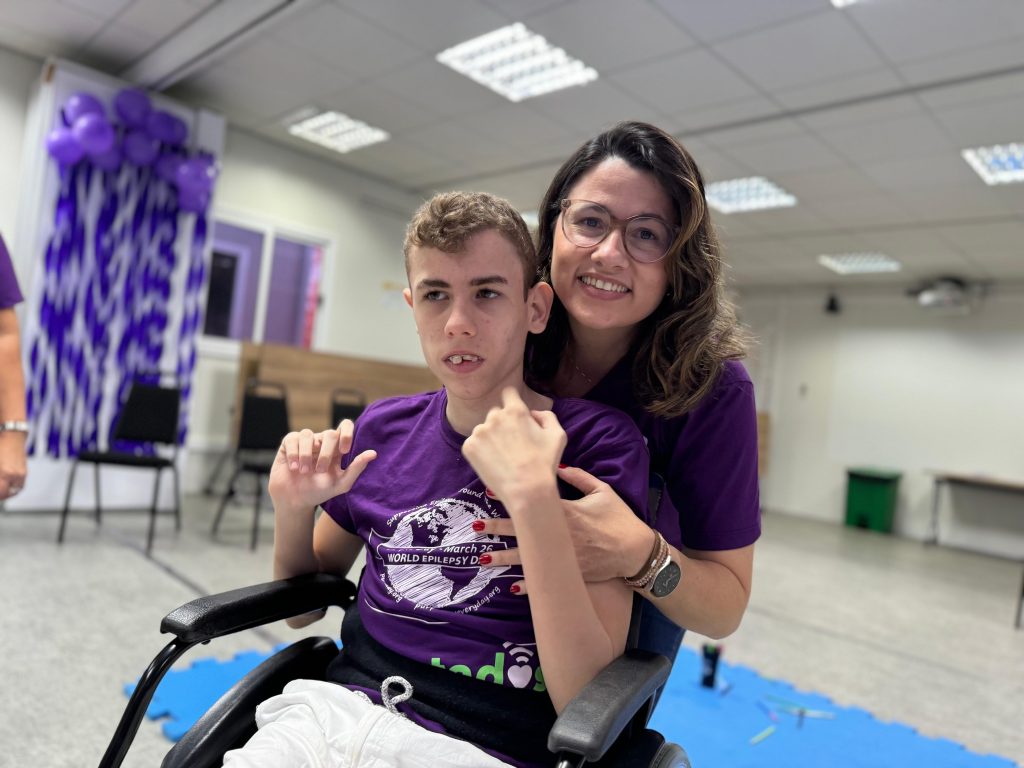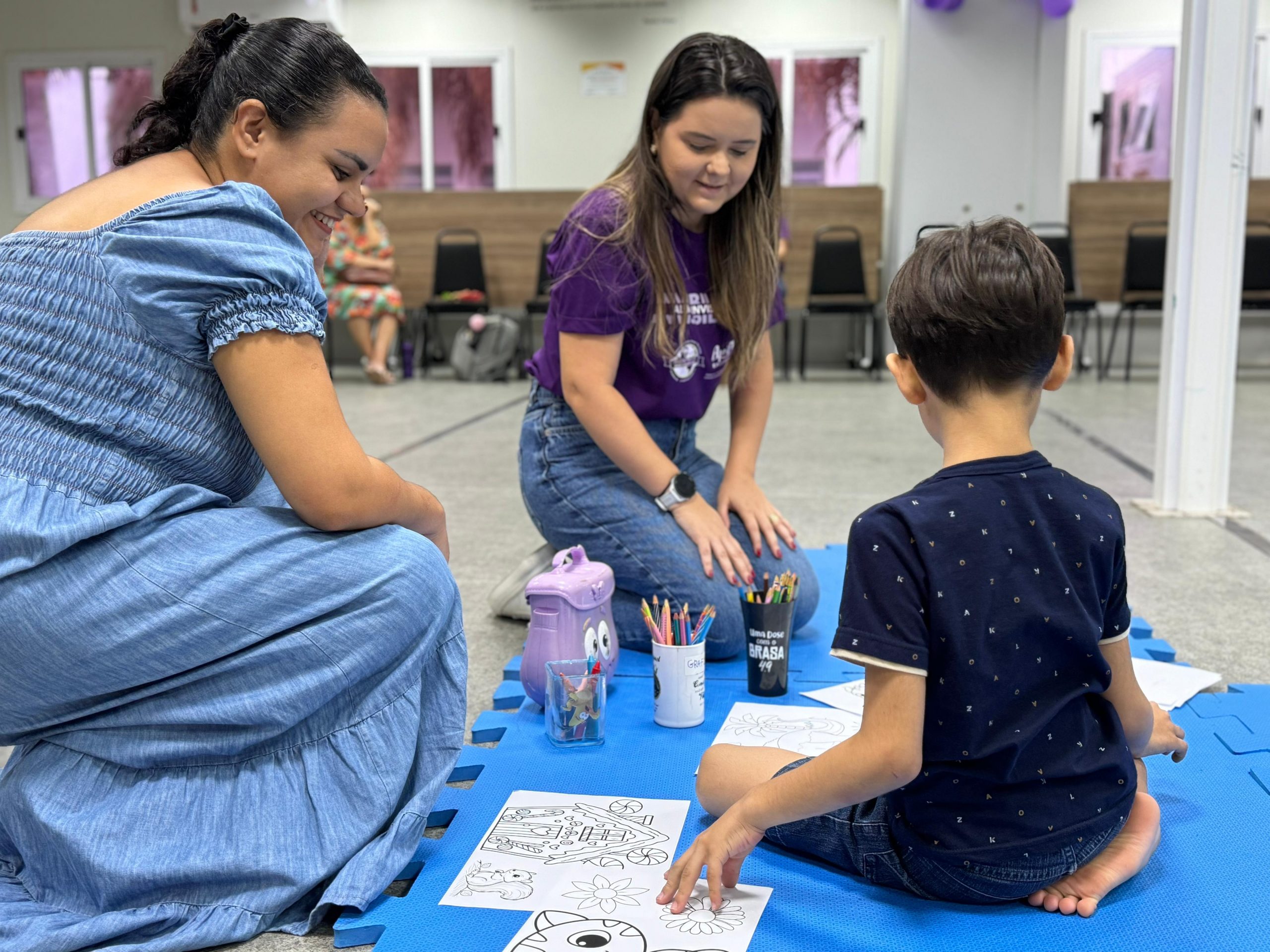The Santos Dumont Institute (ISD) held an event on Wednesday (11) to mark National and Latin American Epilepsy Awareness Day. On the occasion, preceptors, residents and users of ISD's care lines, together with family members and caregivers, participated in educational activities that aimed to demystify epilepsy and address the invisibility that still exists regarding the subject.
The activity was organized by multidisciplinary preceptors and residents who work in the Institute's Drug-Resistant Epilepsy care line, with the collaboration of the organization ApoiE Epilepsia. Several activities were promoted, open to the entire public served at the Anita Garibaldi Health Education and Research Center (Anita), the ISD unit where the action took place.
The event featured a memory game about the ketogenic diet (one of the strategies for controlling epileptic seizures); a life-size board game, with the aim of testing knowledge about epilepsy with myths and truths; and a children's area dedicated to drawing and painting. In addition, at the end, professionals, family and patients socialized over a collective snack.
For ISD neuropsychologist preceptor Sarah Oliveira, awareness-raising moments like this are important to demystify several aspects of epilepsy. “For example, we address the fact that people with epilepsy can have a normal life, because despite the consequences of the condition, with adequate monitoring and a quality team, we can maximize the quality of life for these patients,” she explains.
One of the participants in the event was Luciana Monte, mother of Leonardo, who was diagnosed with meningitis and encephalitis at seven months old and suffered from drug-resistant epilepsy. Today, quality of life and issues of functionality in daily life are priorities for the family.

Luciana is one of the atypical mothers who founded ApoiE Epilepsia, together with Lusia Saraiva and Andrea Hart. The organization regularly seeks partnerships with leading institutions, such as ISD, to promote awareness-raising actions and campaigns, with the mission of not only improving the quality of life of their own children and other patients, but also of transforming society's understanding and view of epilepsy.
“We are very happy with this partnership and to know that this line of epilepsy care exists, with an extraordinary multidisciplinary team. This support is essential, because, unfortunately, epilepsy is still very invisible, and moments like this are of utmost importance to bring together the family, the patient and the professional in this support”, says the mother.
Drug-resistant epilepsy
A reference for the care of people with drug-resistant epilepsy, that is, cases in which medications are not controlling seizures, the ISD has a specific line of care for epilepsy from its Specialized Rehabilitation Center (CER ISD), which receives people of all ages and covers the entire state of Rio Grande do Norte.
Patients diagnosed with drug-resistant epilepsy can seek treatment at Anita, an ISD unit in Macaíba, based on a referral from a Basic Health Unit (UBS). With the epilepsy diagnosis in hand, appointments can be made by calling (84) 4042-0033; (84) 4042-0044, or by WhatsApp (text only): (84) 9-9155-302, from Monday to Friday, from 8 am to 5 pm.
ABOUT ISD
The Santos Dumont Institute is a Social Organization linked to the Ministry of Education (MEC) and includes the Edmond and Lily Safra International Neuroscience Institute and the Anita Garibaldi Health Education and Research Center, both in Macaíba. ISD's mission is to promote education for life, forming citizens through integrated teaching, research and extension actions, in addition to contributing to a fairer and more humane transformation of Brazilian social reality.













